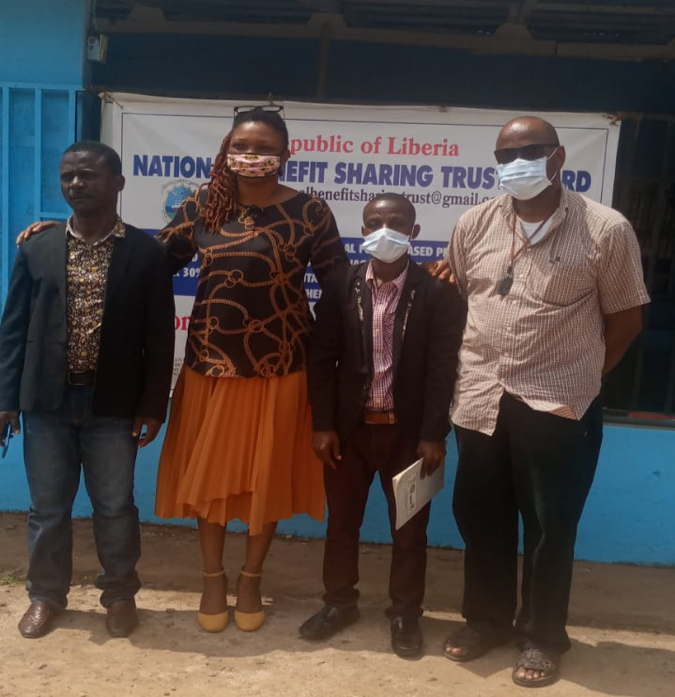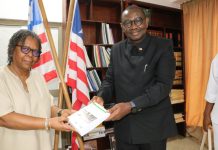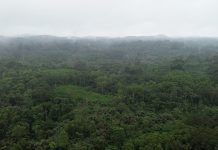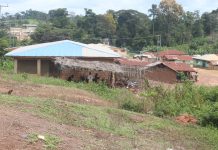Top: New leaders of the National Benefit Sharing Trust Board in group photo following its elections on Thursday. The DayLight/Varney Kamara
By Varney Kamara
MONROVIA – Representatives of the group responsible to manage communities’ forest benefits have elected a new corps of officials for the next three years.
The National Benefit Sharing Trust Board (NBSTB) on Thursday elected Nora Bowier, chairman; Solomon Peters co-chair, Isaac Kipi, secretary; and Witherspoon Emmanuel, treasurer.
Bowier retained her position as chair of the board, while Peters, Kipi and Emmanuel replaced Mathew Walley, Joseph Koon, and Eliza Kronyan served as co-chair, secretary, and treasurer, respectively. They are expected to oversee the spending of payments that logging companies pay to communities as land rental fees. The fund is intended to carry on development across towns and villages affected by logging operations licensed by the Forestry Development Authority (FDA).
“I am even more energized to work harder in serving communities,” said Bowier, who is a campaigner at the Sustainable Development Institute, said after her victory on Thursday. “This shows that we have been working and people have seen our effort. Building on our collective efforts, we need to push harder and ensure that communities are better served.”
With 13 members from civil society, logging-affected communities, traditional leaders, private sector and the government, watchdog that manages the communities’ portions of land rental fees companies pay to the government. The National Forestry Reform Law of Liberia gives 30 percent of all land rental fees (the product of US$1.25 and the size of forests in hectares) to communities for development purposes. The board also ensures government complies with legal payment terms.
Last year, it joined a protest that pushed the government to pay communities US$200,000. Within the last three years, it approved 34 projects across 11 counties and organized the first National Forest Forum meant to improve forest governance and management. The government owes communities US$5.5million in benefits, according to a report by Forest Trends last year. The board is still pushing the government for the payment.
“Moving forward, we are going to strengthen community policies and programs,” Bowier said. “We need to hit the ground running. We need to press the government to make payments. We also need to ensure that logging companies are fulfilling their part of the commitment to communities.”





Facebook Comments